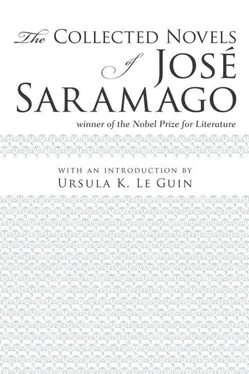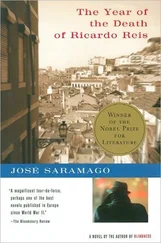Padre Bartolomeu de Gusmão rested his elbow on the lid of the harpsichord, watched Scarlatti at some length, and while they remain silent, let us say that this fluent conversation between a Portuguese priest and an Italian musician is probably not pure invention but an admissible transposition of phrases and compliments they undoubtedly exchanged during those years, both inside and outside the Palace, as we shall have occasion to see in subsequent chapters. And lest anyone should express surprise that Scarlatti was able to speak Portuguese within a few months, let us not forget that he was a musician, and that during the previous seven years he had grown familiar with the language in Rome, where he had been in the service of the Portuguese Ambassador, not to mention his missions throughout the world to royal and episcopal courts, and whatever he learned he never forgot. As for the erudite nature of his dialogue, and the pertinence and eloquence of his words, he must have had help from someone.
You’re right, the priest said, but this means that man is not free to believe that he is embracing truth only to find himself clinging to error, Just as he is not free to assume he is clinging to error, only to find himself embracing truth, the musician replied, and then the priest said, Don’t forget that when Pilate asked Jesus what the truth was, he expected no answer, nor did the Saviour give him one, Perhaps they both knew that there is no answer to such a question, Therefore Pilate becomes like Jesus, In the final analysis, yes, If music is such an excellent mistress of debate, I would rather be a musician than a preacher, Thank you for the compliment, Padre Bartolomeu de Gusmão, I dearly hope that one day my music will achieve the same pattern of exposition, counterpoint, and conclusion you find in sermons and orations, Yet, if one carefully considers what is said and how it is said, Signor Scarlatti, when something is expounded and counterpoised, it is nearly always nebulous and obscure and finishes up in a meaningless void. The musician offered no comment, and the priest concluded, Every honest preacher is aware of this as he descends from the pulpit. Shrugging his shoulders, the Italian said, There is silence after listening to music or a sermon, what does it matter if a sermon is praised or music applauded, perhaps only silence truly exists.
Scarlatti and Bartolomeu de Gusmão went down to the Palace Square, where they parted to go their separate ways, the musician to create music for the city until it was time to start rehearsing in the Royal Chapel, the priest to his veranda, from where he could view the Tagus and, across the river, the lowlands of Barreiro, the hills of Almada and Pragal, and, way beyond, the Cabeça Seca do Bugio, which was barely visible, what a glorious day, when God went forth to create the world, He did not simply say, Fiat, because one word and no more would have resulted in the creation of a world of total uniformity, God went forth and made things as He went, He made the sea and sailed thereon, then He made the earth in order to go ashore, in some places He tarried, others He passed through without pausing to look, and here He rested and, because there was no human being around to watch, bathed in the river, and to commemorate this event, great flocks of seagulls continue to gather near the river-bank, waiting for God to bathe once more in the waters of the Tagus, although these are no longer the same waters, hoping to see Him just once in recompense for having been born seagulls. They are also anxious to know if God has aged much. The mace-bearer’s widow came to tell the priest that the meal was served, below a detachment of halberdiers passed, escorting a carriage. Adrift from her sisters, a seagull hovered over the eaves of the roof, sustained there by the wind that swept inland, and the priest murmured, May God bless you, bird, and deep down he felt that he himself was made of the same flesh and blood, he shuddered as if he had suddenly discovered feathers growing on his back, and when the seagull vanished he found himself lost in a wilderness, This would make Pilate the same as Jesus, he suddenly thought as he returned to this world, numbed by the feeling that he was naked, as if he had shed his skin inside his mother’s womb, and then he said in a loud voice, God is one.
All that day, Padre Bartolomeu Lourenço remained closeted in his room, groaning and sighing, and it was already night when the mace-bearer’s widow knocked on his door and announced that supper was ready, but the priest ate nothing, as if he were beginning a long fast and sharpening his powers of perception, although he could not imagine what more there was to perceive once he had proclaimed the unity of God to the seagulls of the Tagus, an act of great daring, for that God should be one in essence is something not even the heresiarchs deny, and although Padre Bartolomeu Lourenço had been taught that God, although one in essence, is triune in person, today the seagulls made him feel less certain about this. It is now darkest night, the city is asleep, or, if not asleep, silent as the tomb, all that can be heard are the cries of the sentries from time to time, intent upon dissuading any French pirates from attempting to land, and Domenico Scarlatti, after closing all the doors and windows, seats himself at the harpsichord, and the most subtle music wafts out into the Lisbon night through openings and chimneys, the Portuguese and German guards hear the music, the latter listening as appreciatively as the former, the sailors hear it in their dreams as they sleep on deck in the open air and on awakening they can recognise that music, the vagrants and tramps hear it as they take shelter at Ribeira, underneath the grounded boats, the friars and nuns of a thousand convents hear it and say, They are the angels of the Lord, for this is a land most fertile in miracles, hooded assassins hear it as they stalk the streets ready to kill, and when their victims hear that music they no longer plead to be confessed and die absolved, a prisoner of the Holy Office of the Inquisition who hears it from the depths of his dungeon grabs a guard by the throat and strangles him, but for this crime there will be no worse death, Baltasar and Blimunda hear it from a distance as they lie together, and they ask themselves, What music can this be, Padre Bartolomeu Lourenço was the first to hear it, because he lived so close to the Palace, and, getting out of bed, he lit his oil lamp and opened the window to listen more attentively. Several mosquitoes also entered and settled immediately on the ceiling, where they remained, at first hesitant on their long legs, then immobile, as if that faint light were incapable of attracting them, or perhaps hypnotised by the grating sound of Padre Bartolomeu Lourenço’s quill as he began to write, Et ego in illo, And I am in him, and as dawn broke, he was still writing his sermon about the Body of Christ, and the mosquitoes did not feast that night on the priest’s body.
Several days later, when Bartolomeu de Gusmão was in the Royal Chapel, the Italian musician came to see him. Having exchanged the usual pleasantries, they left by one of the doors beneath the King and Queen’s dais which led into the passageway that connected with the Palace, they strolled at a leisurely pace, pausing here and there to inspect the tapestries hanging from the walls, the Life of Alexander the Great, the Triumph of Faith, and the Exaltation of the Blessed Sacrament after drawings by Rubens, the Story of lobias after drawings by Raphael, and the Conquest of Tunis, and if these tapestries were to catch fire one day, not a single thread of silk will be salvaged. In a tone of voice that clearly conveyed that this was not the important matter they were about to discuss, Domenico Scarlatti said to the priest, the King keeps on his dais a miniature replica of the Basilica of Saint Peter in Rome, which he did me the honour of showing me yesterday, He has never conceded me any such favour, but I do not say this out of envy, for I am delighted to see Italy honoured through one of her sons, They tell me that the King is himself a great builder, and perhaps this explains his passion for building with his own hands this architectural monument of the Holy Church, even though on a reduced scale, How very different from the basilica being built at Mafra, which will be so enormous that it will become the wonder of ages, Just as the works men achieve with their hands manifest themselves in many different ways, mine are made from sound, Are you speaking about hands, No, I’m speaking about works, no sooner are they born than they perish, Are you speaking about works, No, I’m speaking about hands for what would become of them if they had no memory and I had no paper on which to write them, So you’re speaking about hands, No, I’m speaking about works.
Читать дальше












